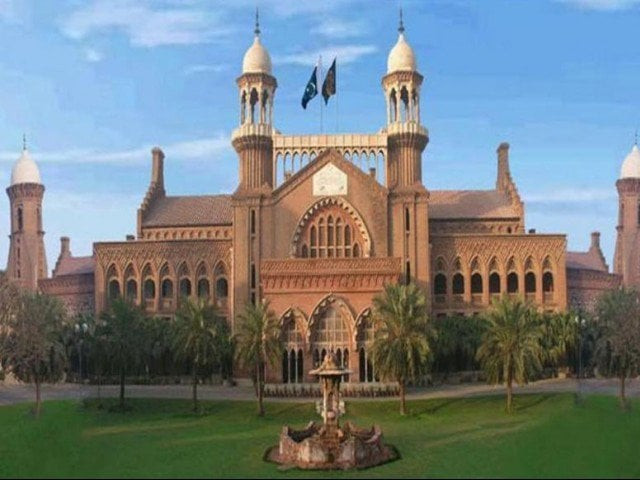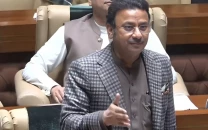LHC grants unconditional pardon to Punjab chief secretary in contempt case
Showcause notice issued to chief secretary earlier also withdrawn

The Lahore High Court (LHC) granted on Tuesday an unconditional pardon to the Punjab chief secretary in a contempt of court case.
LHC Chief Justice Qasim Khan heard the case against the Punjab government for granting judicial powers to the commissioners and deputy commissioners of the province.
Provincial Chief Secretary Jawad Rafique Malik and Home Additional Chief Secretary Momin Agha appeared before the court.
During the proceedings, the chief secretary requested for an unconditional pardon, that the court granted, withdrawing the show cause notice issued to him earlier.
“After my suspending the notification people were punished under price control,” the chief justice remarked. “Whatever the previous chief secretary used to write became law, but after the Mustafa Impex case the approval of the cabinet has become mandatory. How can it be that the bureaucracy does not know the law?”
In July, the LHC sought a reply from the Punjab government after suspending a notification under which the divisional commissioners and deputy commissioners were granted powers of the special magistrate.
Petitioner Abdullah Tanveer had challenged the government’s notification issued on June 17.
While hearing the petition, the chief justice questioned the performance of the Punjab government. He grilled the government over delegating magisterial powers to the officials. The government should avoid disturbing the system, the CJ remarked.
He said it appeared that the government had a keen interest in judicial powers and the court would issue contempt notices to those who had issued the notification.
The Punjab government had made a mockery of the system, the CJ observed.
The petitioner’s counsel Barrister Momin Malik argued that the government had conferred magisterial powers on the officials for carrying out raids, conducting trials and other ancillary matters relating to price control, hoarding prevention, forests, mines and minerals, food adulteration and safety, encroachment on public and government land, canals and drainage, dangerous driving and violation of route permits, safety and design of buildings, land use and municipal services under any provincial and federal law in vogue.
He contended that the notification was a violation of Article 2(A) and sub-section 3 of Article 175 of the constitution. He implored the court that sections 14 and 37 of the CrPC were also violated as the government did not request recommendations from the LHC before issuing it.
Barrister Malik argued that the executive could not exercise judicial powers.
The petitioner prayed to the court to suspend the operation of the notification till a decision on the petition. He called for declaring the notification and the Code of Criminal Procedure (Punjab Amendment) Act 2020 unlawful and void.



















COMMENTS
Comments are moderated and generally will be posted if they are on-topic and not abusive.
For more information, please see our Comments FAQ